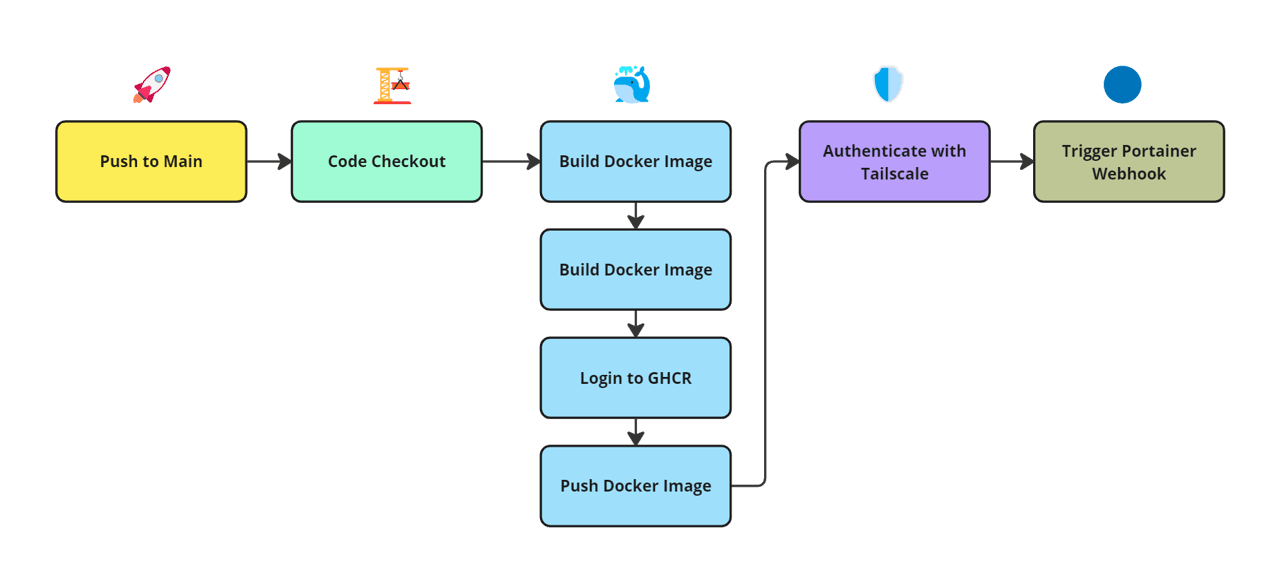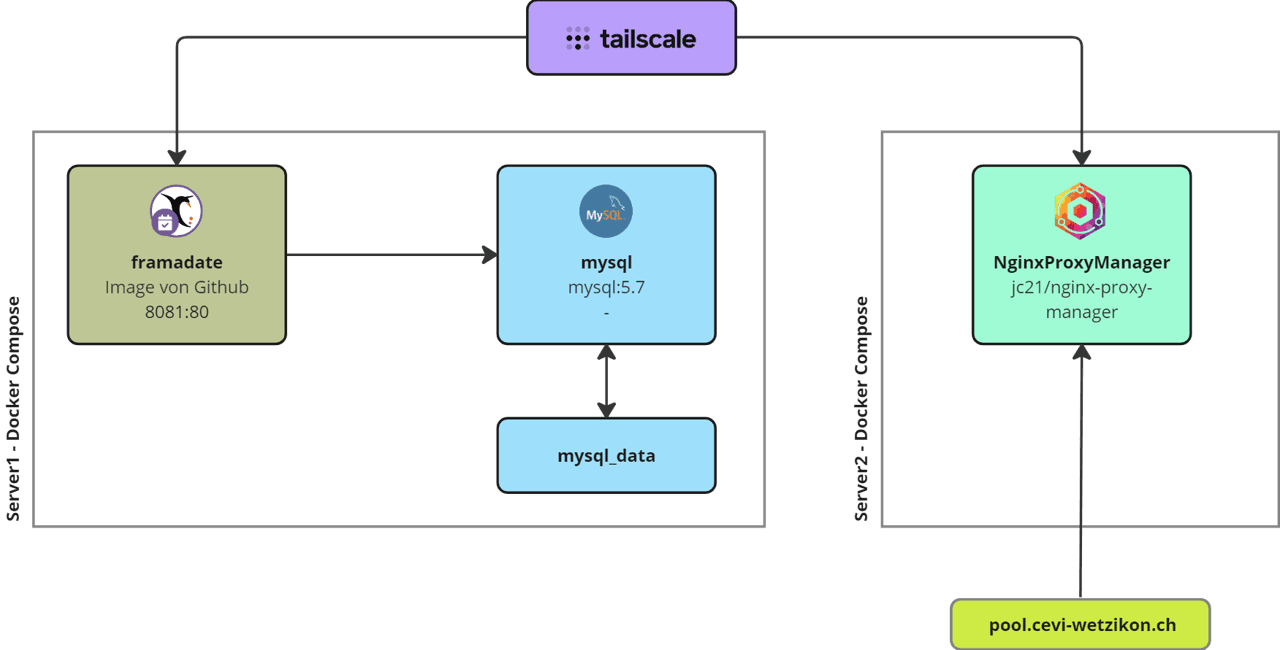How I Set Up a Self-Hosted Poll Tool for Cevi Wetzikon
For Cevi Wetzikon, I was looking for an open-source tool to create polls and meeting date finders, ideally something I could host myself under a custom domain. After testing various solutions, I discovered Framadate – and it ticked all the boxes:
- ✅ Public polls without registration
- ✅ Simple Doodle-style date coordination
- ✅ Self-hosting support
The official installation guide describes a manual setup on a Linux server. That works, but I wanted something more maintainable. So I decided to go with Docker, using Portainer for easy management – including automatic image updates via webhook.
Dockerfile
To containerize Framadate, I created the following Dockerfile from scratch:
FROM php:7.4-apache
RUN apt-get update && \
apt-get install -y git libicu-dev libxml2-dev zip unzip zlib1g-dev g++ mariadb-client jq pandoc && \
rm -rf /var/lib/apt/lists/*
RUN docker-php-ext-install pdo pdo_mysql intl && \
a2enmod rewrite
# Framadate Folder
RUN mkdir -p /var/www/framadate
RUN git clone https://framagit.org/framasoft/framadate/framadate.git /var/www/framadate
# Apache Configuration
COPY ./framadate/apache.conf /etc/apache2/sites-available/000-default.conf
COPY ./framadate/framadate-admin-htaccess.txt /var/www/framadate/admin/.htaccess
COPY ./framadate/framadate-htaccess.txt /var/www/framadate/.htaccess
WORKDIR /var/www/framadate
# Composer
RUN php -r "readfile('https://getcomposer.org/installer');" | php -- --install-dir=/usr/local/bin --filename=composer && \
composer install
EXPOSE 80
CMD ["apache2-foreground"]
Customizing Framadate
Since I wasn’t a big fan of some of the default Framadate UI and logic, I decided to customize parts of the application. I created my own versions of certain files and overwrote them directly via Dockerfile. This gives me full control and helps me keep track of what I’ve changed.
Examples:
COPY ./framadate/php-create_classic_poll.php /var/www/framadate/create_classic_poll.php
COPY ./framadate/./docs /var/www/framadate/docs
COPY ./framadate/script-mdtodocspage.sh /var/www/framadate/docs/script-mdtodocspage.sh
RUN chmod +x /var/www/framadate/docs/script-mdtodocspage.sh
RUN /var/www/framadate/docs/script-mdtodocspage.sh
This way, my Framadate instance runs the way I want it – and I understand what’s happening under the hood.
Deployment Workflow
I set up a GitHub Action to automatically build and push the Docker image to the GitHub Container Registry whenever I push changes. This image is then deployed to my server via Tailscale VPN and a Portainer Webhook – fully automated.

Docker Compose in Portainer
The following docker-compose.yml is used in Portainer on my Docker Ubuntu server. The Framadate image is re-pulled automatically whenever a new version is pushed:
version: '3'
services:
framadate:
image: ghcr.io/surmatik/framadate-ceviwetzikon:latest
ports:
- "8081:80"
depends_on:
- mysql
volumes:
- /opt/docker/framadate-ceviwetzikon/framadate-config.php:/var/www/framadate/app/inc/config.php
mysql:
image: mysql:5.7
environment:
- MYSQL_ROOT_PASSWORD=${MYSQL_ROOT_PASSWORD}
- MYSQL_DATABASE=${MYSQL_DATABASE}
- MYSQL_USER=${MYSQL_USER}
- MYSQL_PASSWORD=${MYSQL_PASSWORD}
volumes:
- mysql_data:/var/lib/mysql
command: --bind-address=0.0.0.0
volumes:
mysql_data:
Environment variables:
MYSQL_ROOT_PASSWORDMYSQL_DATABASEMYSQL_USERMYSQL_PASSWORD
Hosting and Access
The setup runs on my Docker-based Ubuntu server, fully managed with Portainer and secured through Tailscale. Everything stays up to date via webhook – and it just works.

You can check it out live at:
pool.cevi-wetzikon.ch
